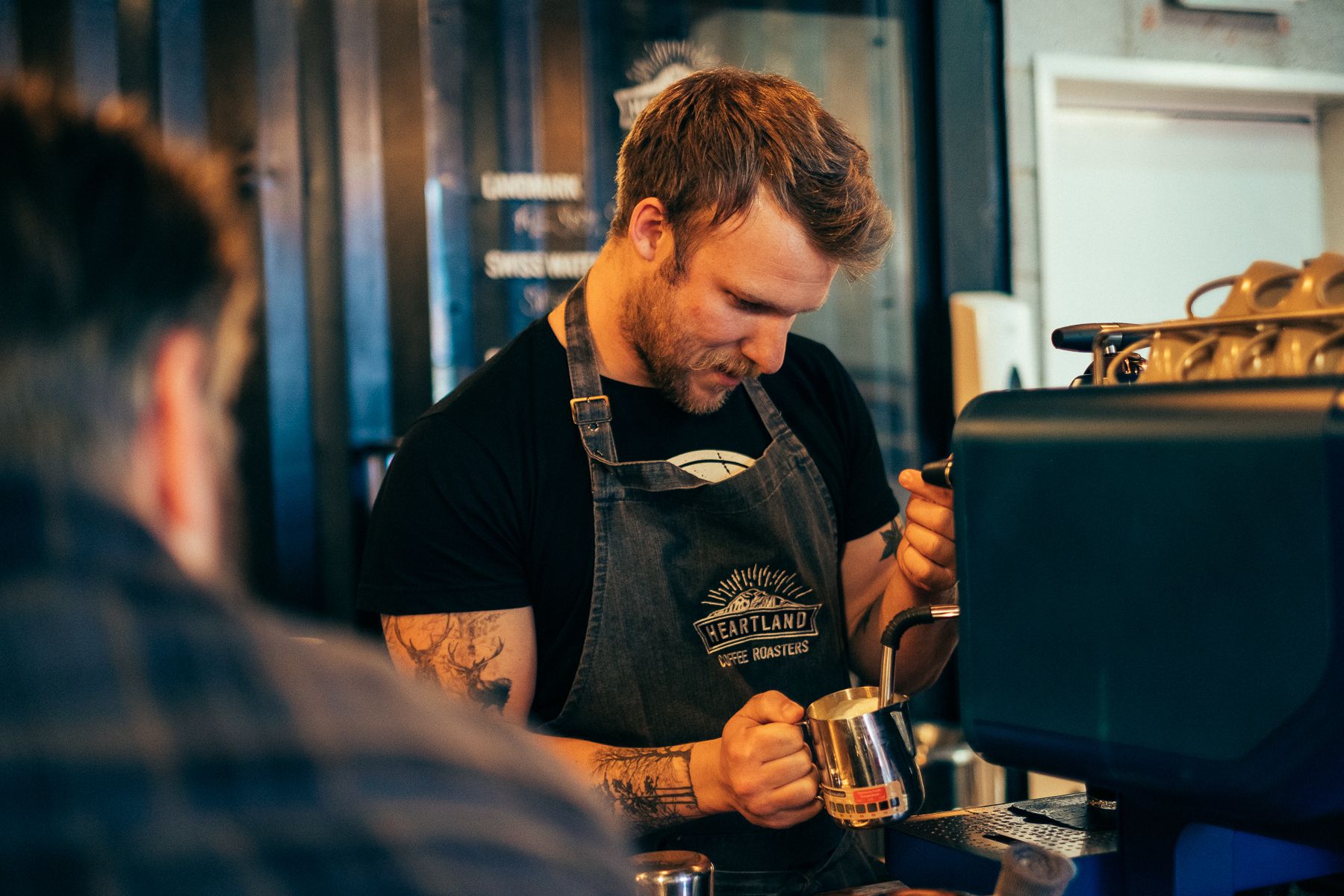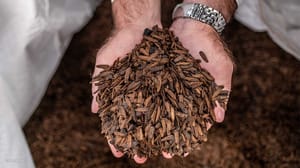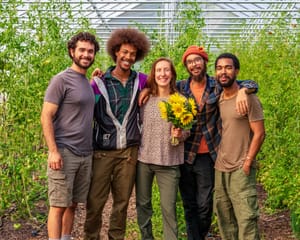North Wales’ mountainous landscape and mining economy slope off into the Irish Sea at Llandudno. Heartland Coffee Roasters are one the town’s few specialty operations where Nathan Prosser leads the business’ development. Directing green bean selection, roast profiles and equipment fall under Nathan’s responsibilities, alongside interfacing with trade customers. In this interview, Nathan outlines his journey in coffee and the realities of bean selection in North Wales.
When did you start your career in coffee and how did you come across the industry?
I started my career in coffee in 2017 after working in different shorter-term positions across other industries, mainly performance sport. The way I entered the industry was through the owner of my favourite local coffee shop. For a few years I sat and sipped coffee from all sorts of origins around the world, and discussed them with the owner as I drank. After a while he told me that the roastery just down the road that was supplying his coffee was looking to expand and take on some staff. He was a good friend of the owner at the roastery and put me in touch with him to start that conversation. After some conversations and a couple of months, I was given a job at the roastery based mainly on my passion for coffee and a small amount of knowledge gleaned from years of home brewing.
My passion for coffee was kicked-off after receiving a bag of Ethiopian coffee and a stove top as an 18th birthday present. After experiencing the new and interesting flavours that coffee had to offer, a journey to explore other coffees was set in motion and everywhere I went I sought out the best coffee I could. This lead me to an afternoon in Leeds when I went to Mrs. Atha’s and tasted their batch brew - a Burundi Kayanza - which was bursting with stone fruit and berry flavours.
What's the status of specialty coffee in North Wales?
The status of specialty coffee in North Wales is unique. We are in an area where we wisely offer a broad range of coffees, including a real crowd pleaser that isn’t too “out there” in its flavour profile. Our house espresso, Landmark, is a coffee which brings typically South and Central American tasting notes; dark chocolates, dark toffee, nutty, caramel. Flavour notes that are very accessible, and that is important for us to be able to offer.
I guess ultimately what I’m trying to say is that if we only offered super high altitude washed Ethiopian coffees which taste like delicious berry teas then only a tiny percentage of people would enjoy our offering. That would not help us in our mission to expand and raise people’s perceptions of coffee. Offering a coffee such as Landmark helps people feel good about third wave/specialty coffee and then when they return, they are keen to explore something new, because now they trust our quality.
What types of people are suited to working in coffee?
Don’t get me wrong though, North Wales does have its pockets of serious coffee experts! It’s always exciting to meet people who want to know what lighter natural coffees you have, or they specifically want something direct trade etc. To say that 90% of the population want a classic style espresso blend, and the smaller percentage want something more specialty is true reflection of North Wales, but actually I think that’s also a true reflection of the global coffee consumer too.
If someone is new to coffee and looking to start out, what would you recommend they start with?
I’m not sure there is a right or wrong way to start with coffee… if you’re someone who is used to tasting things and thinking about the quality and taste of what you’re eating or drinking then you could dive right into some top notch, high scoring funky coffees. But if you’ve never really stopped to see if you can taste toffee in your whisky or fruits in your beer or wine, then maybe starting with a classic South or Central American coffee. Going for some sort of balanced, medium roast Guatemala or Brazil coffee for example is a nice welcome. You could probably expect some accessible tasting notes such as chocolate, nutty and maybe some mild red fruit. On top of that, if you were brewing at home, something like that would also be a touch more forgiving.
Are there some central blog posts or websites that you go to gain more knowledge, develop further skills?
I find Perfect Daily Grind has been the best place to access some well informed articles and they have such a broad catalogue covering all sorts of coffee skills.
What's next for your career? What's on the horizon and what goals do you have for the coming three years?
In the future, I have ambitions to be involved in the creation of a cafe space, whilst continuing to work at the roastery. I have particular interest in the design, equipment selection, people and systems of a coffee shop. Setting the culture of a place like that where there is a chance for regular positive contact with consumers is great for the coffee industry and to tell the stories of the farmers we support.
Find Heartland Coffee Roasters near the train station in Llandudno (Google Maps)






Member discussion